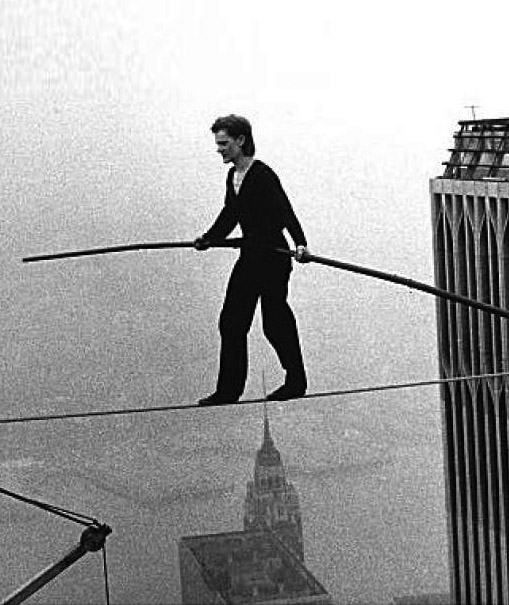Originally appeared in the Rockford Register Star, Sept. 9, 2011
Back in September 2001, in the first column I wrote after the Sept. 11 attacks, I struggled to form some sort of response to what had happened. Naturally, being the DVD reviewer — and a lifelong movie fan — I tried to tie the news of the day into the films of recent years.
Here’s what I wrote 10 years ago:
“I’ve seen planes crash and buildings collapse. I’ve seen terrorists strike America, and I’ve seen America strike back — hard, usually with a cigar in its mouth and a machine gun in its hand.
People die — extras mostly, or the hero’s best friend/beloved partner. Then, the hero — America — grits its teeth, grabs its gun and kills the bad guys, often with a witty remark. Everyone cheers. The credits roll. The end.
I didn’t hear any witty remarks Tuesday. Did you?”
Of course you didn’t. The remarks, witty or otherwise, didn’t arrive until a few weeks later, when comedian Gilbert Gottfried joked at a Friar’s Club roast that he couldn’t get a direct flight because his plane “had to stop at the Empire State Building first.” Someone from the back of the room — a room in New York City, mind you — yelled out that Gottfried’s joke was “too soon!,” and Gilbert shifted gears by telling the ancient (and filthy) “aristocrats” joke. That led to the documentary “The Aristocrats,” which was released in 2005 and remains the only film devoted to a single dirty joke. So that’s at least one movie that was inspired, however indirectly, by the events of 9/11.
But I digress. It’s the sort of thing you do when you’re writing about something like 9/11, but you don’t know what to say.
So I’ll return to that 2001 column …
“In movies, the cameras don’t linger on the victims. The spectacle is what’s important, not the suffering. Tuesday, watching those planes crash and buildings fall, you knew in your gut the worst was yet to come. Now reports are coming in of people dying horribly, in the air and on the ground.
“No movie would include all this human tragedy — it would take the focus away from the thrills. Who wants to root for the Hollywood hero after hearing about rescue workers being crushed or flight attendants being stabbed with box cutters?”
My favorite movie about 9/11 doesn’t have rescue workers or flight attendants or box cutters. In fact, it was made years after Sept. 11, 2001 — but takes place years before.
“Man on Wire” is a 2008 documentary about Philippe Petit, a French tightrope walker who strolled across the space between the Twin Towers back in 1974, just a few years after they were built.
People forget now, but back when those towers were standing, they were considered an ugly architectural blot on New York City’s skyline. But Petit fell in love with the buildings when they were still under construction and began planning his crime. His walk, undertaken with considerable effort and even more considerable risk (legal and mortal), brought a few minutes of beauty, whimsy and magic to those grim steel structures. “Man on Wire” captures the wonder Petit felt standing there in midair, more than 1,000 feet above the ground, and makes it live again more than 30 years later.
But here’s what “Man on Wire” doesn’t do: It doesn’t mention what happened to those buildings. Not once.
We see them go up, in vintage construction footage eerily reminiscent of reports from ground zero. But we never see them come down. Director James Marsh knows what we’re thinking the whole time, and he lets us think it. But he never tells us to think it, and that’s one reason “Man on Wire” is such a special movie.
Another reason is that it’s so much fun. “Man on Wire” is a heist movie, like “Oceans 11.” Only this time, instead of breaking into a building to steal millions of dollars, our heroes are breaking into a building to steal a few seconds of glory. There’s nothing wrong or meaningless about a movie being fun. The best movies — the most memorable, most meaningful ones — take us away from our daily lives and into a world more compelling, more exciting or more enjoyable than the real one.
Sometimes, in the days after 9/11 — and I’m counting these days, too — that’s what we need. A
few hours of cinematic escape.
A few weeks after Sept. 11, 2001, National Public Radio played a comedic bit from a Marx Brothers movie — I think it was “Monkey Business” — for no other reason than it cheered up audiences in 1931, when the Great Depression was at its worst, and some programmer thought it might do the same for audiences 70 years later. I don’t know what it did for most listeners, but it worked for me.
Then again, as I may have mentioned, I’m a movie fan.
Still, I’d like to offer you the same sort of relief. If you’re feeling down this weekend, whether it’s thanks to the memories of 2001 or the realities of 2011, pull out a movie — it doesn’t matter which one — and put it in your player. Maybe it’ll remind you of the people whose lives were lost, 10 years ago. And hopefully, it will remind you why your life is worth living, 10 years later.
